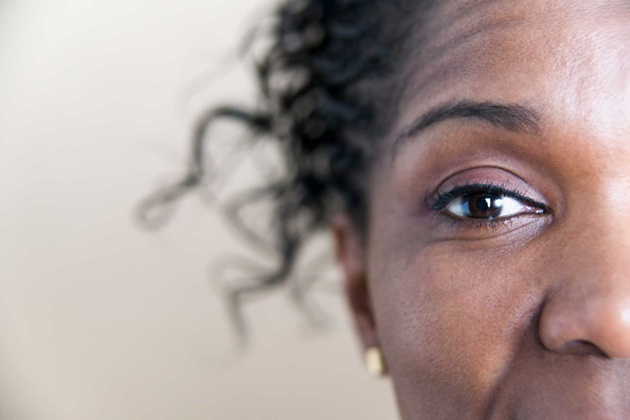Nursing support workers play a pivotal role in identifying and caring for people who are visually impaired
There are around two million people in the UK living with sight loss. And while it may be understandable that eyes aren’t top of the government’s priorities right now, eye health is integral to a person’s physical and mental wellbeing.
RCN Ophthalmic Forum Chair Dr Penelope Stanford, Senior Lecturer at the University of Manchester, and RCN Ophthalmic Forum Committee member Dr Roxanne Crosby-Nwaobi, Head of Research Nursing at Moorfields Eye Hospital, are both passionate about eye health and eager to get the message out that whatever your role in health care, you should always “think eyes”.
With COVID-19 having caused a lot of ophthalmic care to be put on hold, and opportunity for issues to go under the radar, they’re concerned about the long-term consequences.
“People were already on long waiting lists for cataract extractions and other types of ophthalmic surgery and the pandemic has exacerbated the situation,” says Penelope. “It’s turned people’s lives upside down.”
She adds: “It can be particularly challenging for someone with a visual impairment to socially distance. Now more than ever we need to ensure we’re doing all we can to provide the best care possible in this area.”
Roxanne agrees. “Everyone needs to keep eyes in mind,” she says. “Remember to look, listen, feel. We can learn so much from a basic conversation.
“Being aware and looking at a person holistically could prove key to helping a person get the care, treatment or referral they need.”
Five key principles
Look after your own eyes
We all have a responsibility towards eye health – our patients' and our own. Make sure you get your own eyes tested regularly. Working in health care the onus is on you to look after your eyes so you can do your job properly to safeguard your future.
Look, listen, feel
How is the patient? Are they bumping into things? Do they have a history of falls? If you pick up on any signals that there may be an issue related to a person’s vision, alert your manager. The earlier patients are assessed, the better chances of keeping more vision. When we're busy working, sometimes we can forget the basics like chatting with somebody, seeing how they move. A patient not eating could well be linked to their eyes because they might not be able to see the colours of food on the plate.
Be mindful of the challenges
Discover the Royal National Institute of Blind People’s World Upside Down campaign highlighting some of the challenges posed by social distancing. Some people with sight loss have been verbally abused for accidentally bumping into someone while shopping as they can’t judge the social distance. It’s not always obvious if a person is visually impaired and there’s no label to say they can’t see.
Don’t make assumptions
It’s not just older people who might have a visual impairment or eye condition. Remember younger people can also be affected. Every person with a visual impairment is different. Don’t assume they need your help – ask them.
Learn more
Read the RCN publication: Eyes Right: Eye care insights for every health professional. This guidance highlights the importance of eye care, the roles and responsibilities of the carer in delivering care and accessing the right care at the right time. It covers support for the visually impaired, mobility and living skills, ophthalmic emergencies and non-emergency conditions requiring attention.
Eye conditions
Some of the common conditions that may affect vision include:
- cataracts, which causes blurring of vision and can affect contrast sensitivity
- age-related macular degeneration (AMD), which can cause visual distortion and affect the central vision
- glaucoma, which can affect both central and peripheral fields of vision.

Dennis Greer, Vice Chair of the RCN Nursing Support Workers Committee, says:
"The importance of good eye care is paramount and I personally feel all support workers should have some knowledge in this field. As someone with glaucoma – a degenerative eye condition – I have a twice daily regime of two different eye drops. They are unpleasant to use, but a necessity.
"Neglecting your eyes can have a knock-on effect and even jeopardise your job so I always attend regular check-ups. Having glaucoma myself does help me to connect with patients with eye conditions as I can relate to them and help with advice."








